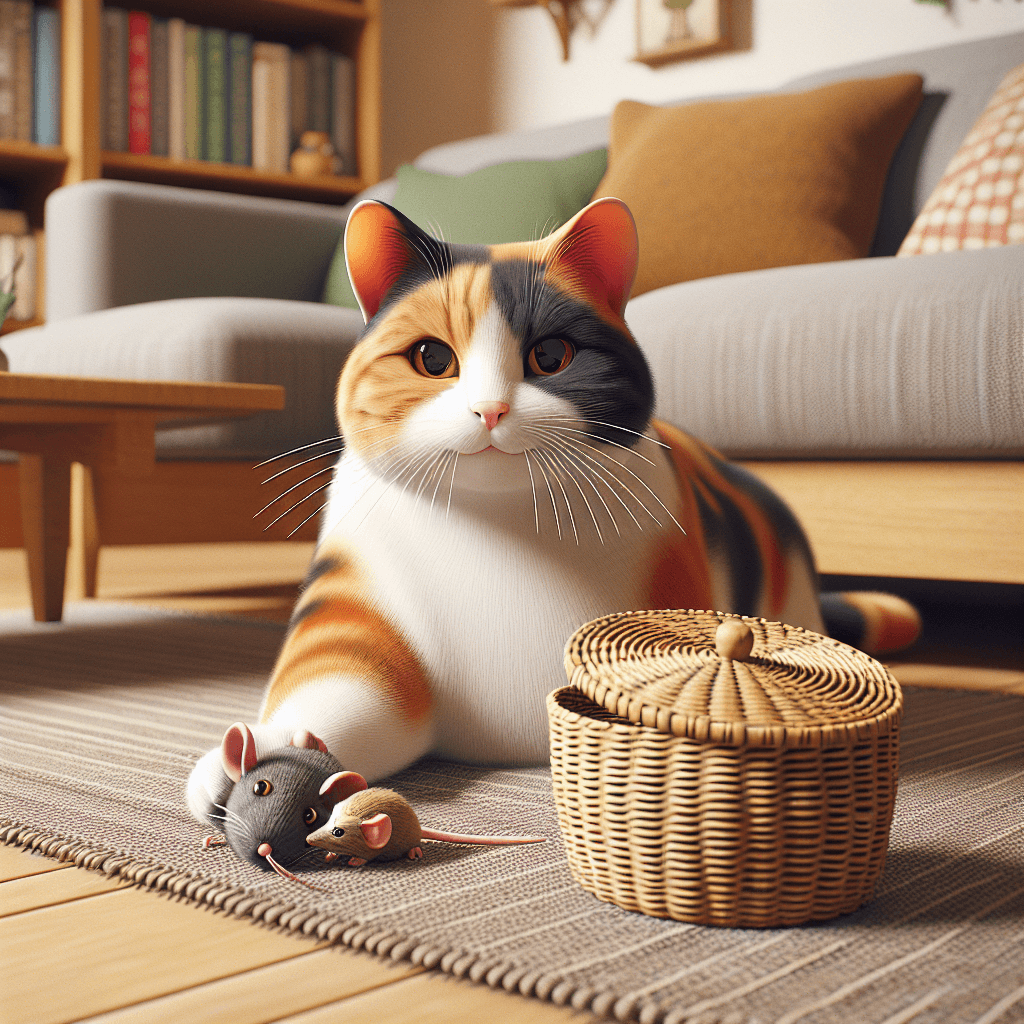Why do cats bring their owners dead animals as gifts
That dead bird on your doorstep isn't the gift of affection you think it is; it's a sign that your cat thinks you're a terrible hunter and is trying to teach you how to survive.


Too Long; Didn't Read
TLDR: Your cat thinks you are a bad hunter. It is acting on instinct, bringing you its prey either to teach you how to hunt or to provide food for you as a member of its family.
A Hunter's Love: The Surprising Reasons Why Cats Bring Their Owners Dead Animals as Gifts
There are few experiences that capture the perplexing nature of cat ownership quite like being presented with a "gift" on your doorstep. You hear a triumphant meow, and your beloved feline proudly drops a mouse, bird, or lizard at your feet. While our initial reaction might be a mix of shock and disgust, this behavior is far from malicious. It's a deeply ingrained, instinctual act that is often misunderstood by us, their human companions. Understanding the "why" behind this primitive offering can transform our perspective from horror to appreciation. This post will delve into the primary theories behind why cats bring their owners dead animals, revealing a complex mix of instinct, instruction, and even affection.
It's All About Instinct: The Hunter Within
At their core, domestic cats are still predators. Despite thousands of years of domestication, complete with cozy beds and readily available food bowls, the hunting instinct remains powerfully hardwired into their DNA. This drive isn't necessarily linked to hunger. A 2021 study highlighted that even well-fed cats will hunt, driven by the innate predatory sequence of stalking, chasing, pouncing, and killing.
Bringing the prey home is the final step in this sequence. For a wild cat, the "home" or den is the safest place to consume a meal without the threat of it being stolen by other predators. When your cat brings its catch into your house, it's simply following this ancient script: hunt, kill, and bring the prize back to the safety of the den to be dealt with later.
A Feline Teaching Moment
One of the most widely accepted theories among animal behaviorists is that your cat is trying to teach you how to hunt. In the wild, mother cats bring home injured or dead prey to their kittens. This serves as a crucial lesson, demonstrating what is food and how to eat it. As the kittens grow, the mother will start bringing back live prey so they can practice their own hunting skills under her supervision.
Your cat may view you as a member of its family, but also as a rather inept hunter. After all, it has never seen you successfully catch a mouse. From your cat’s perspective, it's sharing its hunting prowess and trying to teach you vital survival skills. This "gift" is essentially a demonstration—a well-intentioned, if slightly misdirected, lesson in providing for yourself. This behavior is particularly common in spayed female cats, whose maternal instincts to teach and provide for their family remain strong.
A Gift from the Heart (and Claws)
Beyond instinct and instruction, bringing you their prey can be a genuine sign of affection and trust. Cats are social animals that form colonies, and within these groups, they often share resources. When your cat brings you its prized catch, it is treating you as a significant member of its family. It’s a profound compliment.
Think of it as your cat contributing to the household. It is sharing its bounty with you, ensuring the "colony" is well-fed. They are bringing a valuable resource to their safe territory and presenting it to their most trusted companion. In their world, this is an act of love and provision, a true token of their esteem for you.
How to Handle These Unwanted Gifts
While the intention is good, the reality of a dead animal in your living room is less than ideal. How you react is crucial.
- Never punish your cat. Scolding or punishing your cat for this behavior is counterproductive. They will not understand your reaction and may interpret it as a rejection of their gift, which can damage the bond you share.
- Acknowledge the gesture. Offer gentle praise, like a soft "thank you" or a head scratch, to acknowledge their effort. You are rewarding the thought, not the dead creature itself.
- Dispose of it discreetly. Wait until your cat has lost interest and is in another room before you quietly and calmly dispose of the "present." If you do it in front of them, they may think you simply didn't like that particular one and will try to bring you something better next time.
- Redirect their instinct. The best way to reduce hunting is to keep cats indoors, especially during dawn and dusk when their prey is most active. Provide plenty of interactive playtime with toys like wands or laser pointers to help them satisfy their predatory drive in a safe and controlled manner.
Conclusion
While finding a dead mouse on your pillow is never a pleasant surprise, understanding the motivation behind it can change everything. This behavior is not a gruesome act of defiance but a multifaceted expression of your cat's natural world. Whether they are acting on pure hunting instinct, attempting to pass on their skills to their less-capable human, or simply showing you their ultimate form of affection, this offering is a sign that you are an integral part of their family. So, the next time a "gift" appears, try to see it through their eyes: a primitive, powerful, and profound declaration of love.


